I’m pleased to report that 2009 yielded fewer jaw-droppingly bad manga in the vein of Eiken, J-Pop Idol, or Shiki Tsukai — surely the most confusing manga ever written about weather — though it wasn’t devoid of clunkers. Below are my top five nominees for Worst Manga of 2009. Some earned demerits for lousy art or writing; others for gross sexism; and others for insulting my intelligence as a reader. Keep in mind that while I try to read widely, there are definitely titles I’ve missed or avoided — Tantric Stripfighter Trina, anyone? — so I encourage you to share you own nominees for The Manga Hall of Shame, as well as your reactions to this year’s dishonorees.
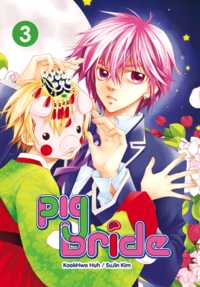 5. Pig Bride
5. Pig Bride
By Huh Kook-hwa • Yen Press
Si-Joon, scion of a powerful family, has a strange experience as a child: while lost in the woods, he accidentally becomes engaged to a girl cursed with a pig’s face. Mu-Jeon, she of porcine features, remains a hazy memory for Si-Joon until his sixteenth birthday, when she returns to claim him, demanding that they consummate their marriage right now. There’s just one problem: Si-Joon has his eye on Doe-Doe, a beauty who terrorizes her female classmates but makes nice with the boys. Lest Pig Bride sound like a wacky romantic comedy, let me say that there are few, if any, laffs to be found. The author’s contempt for women her female characters is palpable: the female characters girls are either hysterics (Mu-Jeon pursues Si-Joon with abandon, dignity or common sense be damned) or ice queens (Doe-Doe seems more interested in collecting hearts than actually being with anyone). The hyper-stylized art is similarly awful, with characters sporting grossly distended necks and chins so pointy that they’d made a razor bleed. I love manhwa as much as the next gal, but Pig Bride isn’t doing much for the cause of Korean comics in translation. (Text revised 12/24/09; see end of article for further commentary.)
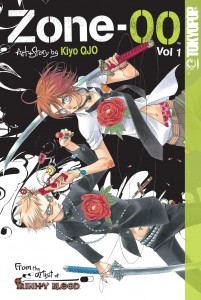 4. Zone-00
4. Zone-00
By Kiyo QJO • Tokyopop
Zone-00 is easily one of the most confusing and unappealing books I’ve read this year, a fever dream of decapitations, impalements, and half-naked bodies. The layout is dark and busy — overstuffed, really — looking more like a Tokidoki handbag pattern than sequential art, with images and word balloons filling every inch of the page. From time to time, Kiyo Qjo’s rich, weird imagination shines through, as when she introduces a pair of possessed Harley Davidsons, or stages a hilarious conversation between a cat and a dog about the merits of fanservice. (The cat is pro-panty shot; the dog is more modest.) Too often, however, Zone-00 seems like a grab bag of half-baked ideas and pin-up drawings in search of a story; about the best I can say for Zone-00 is that the fanservice is equal opportunity, as almost every page features ladies with gravity-defying H-cups and men with granite six-packs. If your vision of the future includes stripper nuns armed to the teeth and shirtless motorcycle gangs, Zone-00 might be your cup of tea; all others are advised to stay away. (Reviewed 9/3/09.)
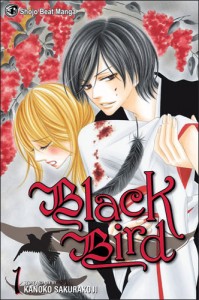 3. Black Bird
3. Black Bird
By Kanoko Sakurakouji • VIZ Media
“You can be eaten, or you can sleep with me and become my bride.” So declares Kyo, a handsome demon who’s been waiting for years to make Misao his wife and secure his position as Head Tengu. (Or something along those lines; drinking her blood is key to becoming the World’s Most Powerful Supernatural Being, hence the scores of demons interested in sampling Misao’s goodies.) Kyo’s declaration underscores the main problem with Black Bird: the entire story revolves around its heroine’s repeated degradation, making a fetish of her injuries and her helplessness. Demons slash her throat, poison her, push her off rooftops, and slam her against walls, yet she never defends herself or runs away, relying instead on Kyo to save her. Kyo’s “rescues” are as icky as the attacks themselves, as Kyo licks Misao’s wounds (he says he’s healing her; I say, ewwwwwwww), pins her down, and browbeats her for not sticking close to him. Some readers may find him sexy, but grouchy old feminists like me will see him for what he is: a wolf in knight’s clothing, posing as Misao’s savior while manipulating her for his own selfish interests. (Reviewed 7/21/09.)
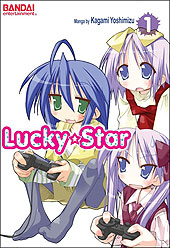 2. Lucky Star
2. Lucky Star
By Kagami Yoshimizu • Bandai Entertainment
Dear Manga Publishers: Please stop licensing 4-koma titles. Most of the translated material in this format is at best dull — wait, was that a joke? — and at worst incomprehensible — wait, the heroine has a semi-romantic relationship with her cat-eared clone? Lucky Star is a prime example of why 4-koma manga don’t work well in English: the punchlines aren’t funny, and the characters are so one-dimensional that their daily travails aren’t interesting enough to hold our attention. (If the only “personality trait” a character manifests is a preference for watching anime over doing homework, I’d say the manga-ka needs to flesh her out just a little bit more.) Add to the mix a translation that, in Melinda Beasi‘s words, “strips the characters of any recognizable voice” and kills the jokes, and you have a recipe for one seriously dull read.
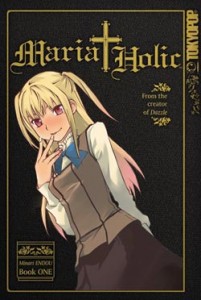 1. Maria Holic
1. Maria Holic
By Minaru Endou • Tokyopop
In a more charitable mood, I might characterize this mean-spirited comedy as a lame attempt at satirizing yuri manga. The jokes aren’t smart enough, however, to qualify as satire; most of them involve humiliating the series’ naive heroine, whose lesbianism is held up to constant ridicule. Author Minaru Endou beats a single joke into the ground, with poor Kanako developing crushes on all of her classmates and suffering nosebleeds whenever she catches sight of them changing, wearing gym clothes, tossing their hair, talking to friends… you get the idea. (Did I mention that Maria Holic runs in Monthly Comic Alive, a magazine aimed at men?) Mariya, Kanako’s cross-dressing nemesis, is a truly repellent character, threatening to expose Kanako and mocking her interest in women. I think we’re supposed to find Mariya deliciously evil — and gee, nothin’ says eeeeeeeeeeeeeeevil like cross-dressing — but he comes across as sadistic, homophobic, and desperate; I spent most of volume one wishing for a great big foot to drop from the sky and squash him, a la Monty Python’s Flying Circus. (Reviewed 9/23/09.)
UPDATE, 12/24/09: Kurt Hasseler of Yen Press posted an eloquent and thoughtful rebuttal to my assessment of Pig Bride, which you can read by clicking here. His comments prompted me to revise my review to make it clear that I’m not accusing the author of being a misogynist, but am critiquing the way in which she depicts her female characters. I want to thank Kurt for a spirited and intelligent debate, even if I remain unpersuaded about Pig Bride‘s merits.
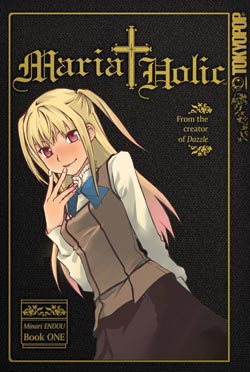
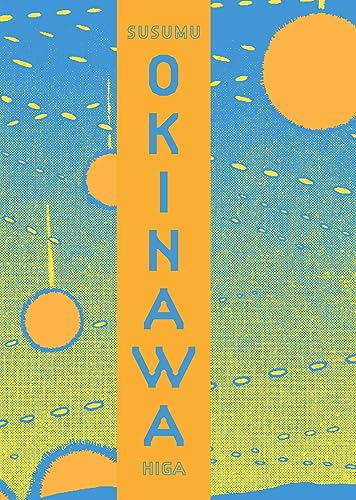
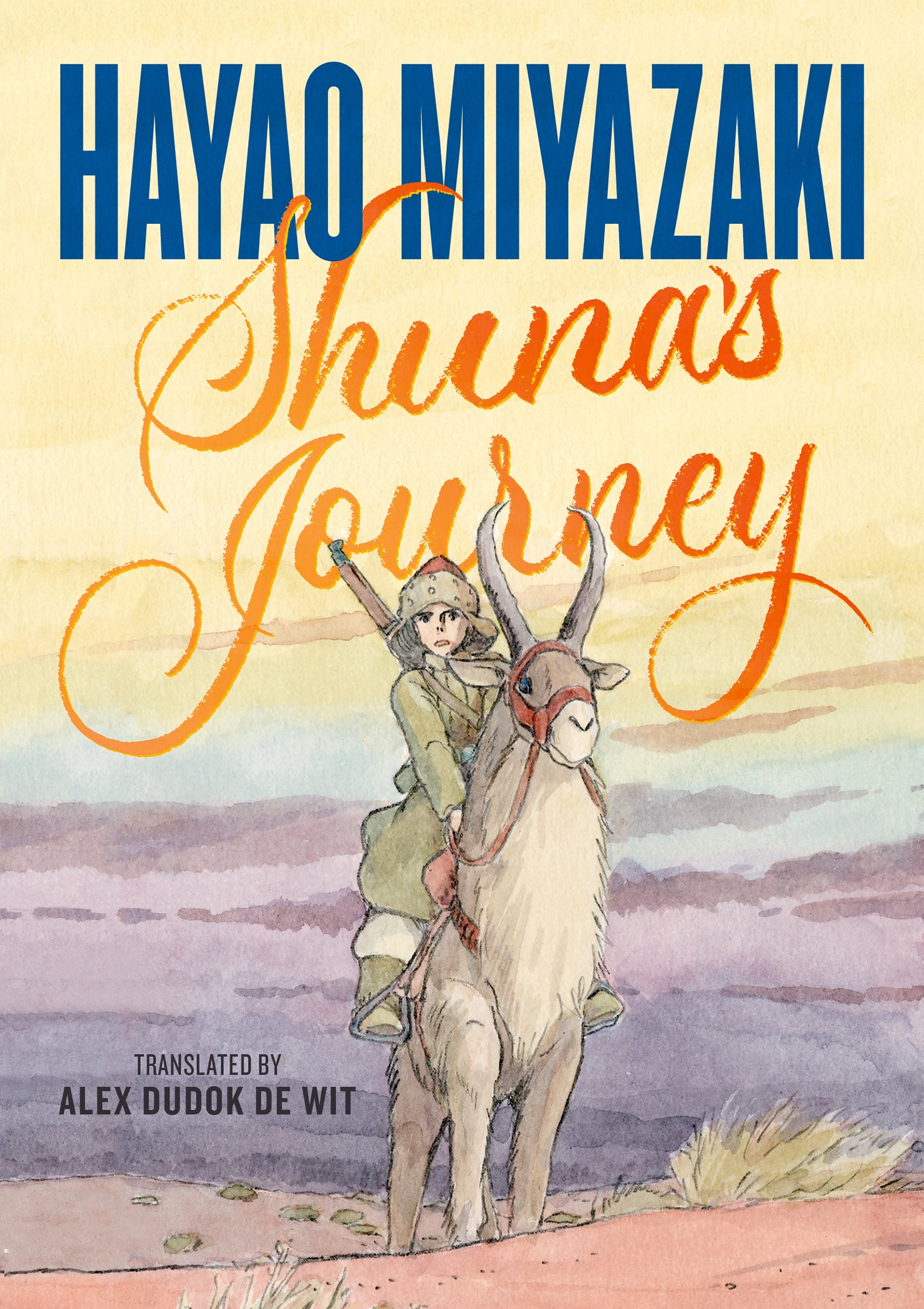
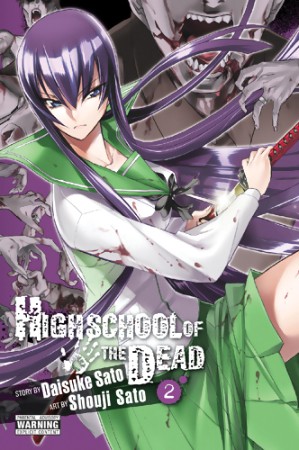
Melinda Beasi says:
Hee! I feel surprisingly pleased to be quoted on a worst-of list. 😀
Katherine Dacey says:
I nodded vigorously throughout your review of Lucky Star. Talk about a prime example of a lousy translation sinking a book!
Erica Friedman says:
Fabulous Kate. You know I agree with everything you’ve said, but you forgot to slam the dreadful translation on Lucky Star, which actually made it amusing from time to time.
Pig Bride made me want to scream and you know my thoughts on Maria + Holic.
Thanks for continuing this list – I think it’s important for the manga companies to be told what doesn’t work, along with what does.
Cheers,
Erica
Hungry for Yuri? Have some Okazu!
http://okazu.blogspot.com
Melinda Beasi says:
It was actually incredibly difficult to write that review, because I felt like the translation was so bad, I had no way of determining whether the book was any good or not.
Katherine Dacey says:
@Erica: And thank you for writing so eloquently about Maria Holic. I’d found it dreadful, but your review really helped me put my finger on what was so offensive about it. I hope more folks realize just how mean-spirited it really is. And whoa nelly… the Lucky Star translation was about as tin-eared as they come.
@Melinda: Sometimes the worst books inspire the best prose. It was a very thoughtful review, given how maddeningly awful Lucky Star was to read.
@Rachel: Glad to know providence stepped in and saved you from Pig Bride.
Rachel Y. says:
I’m glad I read this review.
I was about to pick up ‘Pig Bride’ today – but I guess some cosmic force stepped in & I ended up getting ‘Pandora Hearts’ instead. c :
David Welsh says:
Bless you for putting Black Bird on this list. It also represents my least favorite cover motif, the vulnerable woman being dominated by the aggressive male. Because ick.
I’ll toss out two of my choices:
The Magic Touch gets my disapproval for its complete, shameless laziness… sloppy art, dull storytelling, a squandered premise. When the plot hinges on characters being identical twins, they should resemble each other.
I found Gakuen Prince revolting. The creator clearly has talent, and to see it applied to such a life-negating premise was one of the more depressing reading experiences I had this year.
Katherine Dacey says:
And I’m glad you mentioned Gakuen Prince, which I toyed with including on the list. Like Black Bird, its creator doesn’t know the difference between humiliating her heroine for our delectation and showing her heroine struggling with adversity. Girls really deserve better than this.
Oliver says:
I’m glad I read this list! I was so smitten with Maria Holic’s cover art and presentation that I was ready to go pick it up. I don’t want to find out the hard way about problem series’.
And I’m sad about Magic Touch because I found the first two volumes for cheap and now it’s not even worth continuing. David put it right when he said ‘squandered premise’.
There is no shortage of artistic talent coming out of Japan, but sometimes it can skew a different way than what we think is ideal. The series’ mentioned here may be quite popular in Japan.
A comment about 4-koma: I noticed translation issues with ADV’s Azumanga Daioh, but they weren’t too bad because I found Azumanga to be a very funny read. Maybe Yen improved on it?
Zone-00 was beautiful, but hard to hold on to for future volumes 🙁
Sarah says:
I have to say that I don’t agree with the hall of shame listing, I’m rather fond of the top three, and I also love some of the others listed in the following comments but everyone is entitled to their oppinion so Cheers and good reading, just try and enjoy instead of being critical you might find you like it better that way.
Katherine Dacey says:
@Oliver: I’ll be interested to see the new edition of Azumanga Daioh, too. I thought the ADV edition was fine — as you note, the jokes hold up pretty well in translation, and I don’t remember it being too tin-eared. I should also note that Azumanga is one of the few 4-koma titles I’ve really liked (along with Shoulder-a-Coffin, Kuro and I am a Turtle). If publishers licensed more 4-koma titles in that vein, I could get on board with it.
And yes, Magic Touch was pretty dull. I’ve never thought that a series needed to be smuttier before, but…
@Sarah: Dissenting opinions are always welcome! Several of the titles on my list (and mentioned here in the comments) have been strong sellers this year, so take comfort knowing that I’m in the minority with my opinion of books like Black Bird and Magic Touch.
Travis says:
Ugh, that’s too bad about Maria Holic. It sounded interesting…
Katherine Dacey says:
@Travis: I picked it up on the strength of the cover art, thinking it was going to be something in the same vein as Your & My Secret: wacky gender-bending hijinks with a point to make. Wow, was I wrong! Erica Friedman wrote a devastating review at Okazu that helped me clarify my thinking on the book. It’s worth a look if you’re still on the fence about buying it: http://okazu.blogspot.com/2009/10/anti-yuri-manga-maria-holic-volume-1.html.
Wunderlampe says:
Oh, come on. Look, can I try and make this easy? Imagine Maria Holic with the genders reversed for a second. It’d be utterly mainstream. Just take a look at Urusei Yatsura. Would the depiction of a perverted, airheaded male being crushed underfoot by a brilliantly cruel female be considered a candidate for the “hall of shame”? If not, why’s it bad when the gender’s are reversed?
Because that is precisely what Maria Holic is. If anything, it’s not just a satire on Yuri tropes, but also on the “perverted loser” anime tropes. Nor can it be described as homophobic; the reason that it’s amusing to watch Kanako being ground under one of Maria’s four-inch steel tipped stilettos isn’t that Kanako’s a lesbian, it’s that she’s an airhead and thoroughly unlikable. Something that routinely crops up is that you are about to feel sympathy for Kanako, just before she opens her mouth. Whereupon sympathy promptly vanishes.
To give one example, the sole reason she acts friendly to any of her classmates is to get into their pants. Again, imagine a male with attitudes like this and the sympathy he’d get.
Katherine Dacey says:
Wunderlampe: Sorry, but no dice. Maria Holic makes explicit that the heroine is a lesbian (one character even calls her a “lesbo”), so this is not simply a gender-reversed version of the usual loser-guy-getting-nosebleeds-around-cute-girls premise that’s common in anime and manga. Moreover, Kananko isn’t ridiculed just for being a ditz; she’s also mocked for being a girl who likes girls. And last time I checked, that’s exactly what homophobia is.
Wunderlampe says:
Katherine,
I think you mistake me. I never denied she was a lesbian – I was asking why, exactly, is it business-as-usual to have a loser male who gets nosebleeds at girls, but heinous to have a loser female who gets nosebleeds at girls? Also, I didn’t say that Maria wasn’t homophobic – maybe he is, maybe he isn’t – but that the humor itself isn’t. That is, watching Kanako get clobbered isn’t amusing because she’s a lesbian, but because she’s a) incredibly stupid, and b) thoroughly unlikable.
As I said, maybe Maria is a homophobe, or maybe he dislikes Kanako so much that he’ll let her have it with whatever’s to hand. Let’s say he is homophobic. Why, exactly, does that matter? Take a look at the following for instance:
http://ayamechancosplay.mysticsushi.com/cosplaypics2/anderson.jpg
There is a huge fandom for Hellsing‘s Anderson, despite the fact that he’s objectively to the right of Franco. That doesn’t bother me & I don’t see why this should, either.
Katherine Dacey says:
“Let’s say he is homophobic. Why, exactly, does this matter?”
Because Maria’s homophobia isn’t being critiqued or contrasted with any other points of view; he’s mocking Kanako for liking other girls, threatening to “out” her to other girls and teasing her for being easily aroused by her classmates. That’s why it matters. I’m going to refer you to Erica Freidman’s review at Okazu for a more thorough critique of the series:
http://okazu.blogspot.com/2009/10/anti-yuri-manga-maria-holic-volume-1.html.
Wunderlampe says:
Thanks for reopening the comments. Again, my disagreement is basically in two parts. The first one is that what’s sauce for the gander is sauce for the goose – we’re drowning in anime and manga about perverted looser males under the iron heel of a girl, this is just the converse.
The second point about “why does it matter” if Maria is homophobic, let me first state that I don’t think he is. Unless one is going to consider it part of his total sociopathic contempt for all humanity that isn’t related to him, and his slightly less than total sociopathic contempt for all that is. But, even if he is, I maintain it’s irrelevant. The reason is encapsulated in my previous point about Anderson, and I could expand it by pointing out that DBZ – a children’s anime, mark you – has a hero who has happily slaughtered entire planets, or even by pointing to this:
http://fc04.deviantart.com/fs46/f/2009/208/5/8/Millenium_Cosplay_by_Lady_Tigress.jpg
If the anime screen can screen out fascism, it can do the same to homophobia. Or, to phrase it another way, if people can fanboy all over freakin’ Millenium, it’s equally fine to savour Maria’s pure-blooded sadism.
The humor of Maria Holic isn’t homophobic for exactly the same reason that Hellsing isn’t a fascist recruiting tract. Kanako isn’t a likeable sweetheart like Kaorin from Azumanga Daoih – she’s vapid, stupid, and has no real concern for any other human being. To her, the other girls at the school are just props to weave her fantasies around, and she has trouble imagining them as anything other than that. What is really interesting is that, as the series goes on, you see that that kind of thinking is far more heartless than even Maria’s brilliant coldness. You realize that the reason the girls appear at first as classic yuri tropes is because that is how Kanako is determined to see them, but as it goes on, you see them as real characters, and not tropes.
So, to summarize, the humor of the series isn’t at Kanako’s expense because she’s a lesbian; it’s at Kanako’s expense because she’s a thoughtless fool.
And in what has to be one of the cleverest reversals I have seen, you end up seeing that, in the literal sense, Maria is more thoughtful and concerned about his classmates than Kanako is. For even a total sociopath like Maria has to grant them the basic respect of considering them real individuals, if he is going to succeed at anything, while Kanako’s fantasist narcissism doesn’t require granting them that basic respect.
I’ve read Erica’s review, and I’m afraid to say that I think it misses the mark for the reasons I’ve just outlined. Also, emotional torture either is or is not a legitimate comedic device; the victim’s sexual orientation and/or sex has no bearing on it.
(incidentally, she’s also wrong about Kanako developing “Stockholm syndrome” – I know that’s how it looks, but they lampshade that very neatly later on).
Katherine Dacey says:
Wunderlampe: Thanks for taking the time to spell out your reasons for liking Maria Holic. I can’t comment on where the series goes in later volumes, as only one volume of the manga was available when I posted my review, but based on what I saw in the first chapters, Maria’s behavior seemed homophobic.
I’d also say that Maria Holic isn’t quite a neat reversal of what you so aptly characterize as the “perverted loser guy under the iron heel of a girl” plot, as that scenario would imply that Kanako was boy crazy. The fact that she’s interested in girls puts a different spin on the material, especially since the manga runs in a men’s magazine, not Hana to Yume. Her lesbianism allows readers to have their cake and eat it, too — they can enjoy the send-up of the loser-guy stereotype while being treated to the kind of fanservice that’s associated with that particular genre. That’s part of the reason the series left me with a squicky feeling.
I certainly agree that Kanako comes off as an indiscriminate dimwit in many scenes, but I still didn’t relish her emotional torture. I generally prefer the targets of that kind of humor to be more deserving, and since it seemed to me that her lesbianism was being mocked, I couldn’t get on board with it.
I think we’ll just have to stand by our respective positions on this title, but I appreciate the care and thought with which you responded to my original post.
Wunderlampe says:
Bah – boy crazy, girl crazy, whatever.
Anyway, good discussion. Thanks for letting me state my point of view.
jazzbie says:
I’m gay and echo your sentiments about maria holic, it’s just mean-spirited and terrible at times. I guess fans can argue it’s supposed to be ironic a cross-dressing guy is slurring homophobic attacks, but i don’t give the author that much credit.
I love your writing style and site btw 🙂
Katherine Dacey says:
@jazzbie: Thanks for adding another perspective to the conversation about Maria Holic. Given how lowbrow the humor is, I agree with you — I doubt there’s any intended irony about Maria’s sadistic behavior. (Wit seems to be in very short supply in Maria Holic.) And thanks for the feedback on my writing — glad you enjoyed reading this entry!
Wunderlampe says:
I’m aware that I’m not going to change anyone’s mind, but I’d just like to point out that neither of this answers either of my points. Firstly, that what’s sauce for the gander is sauce for the goose, and secondly that the worst that can be attributed even to the character of Maria is peanuts compared with the kind of thing that enjoys accepted fandom elsewhere in anime and manga.
Katherine Dacey says:
@Wunderlampe: I’m going split hairs with you here. I did address both of the issues you raise; I think the real issue is that you don’t agree with what I’ve said, and that’s OK — I’m not expecting to convert you or anyone else to my way of thinking about this title! I have spelled out very clearly why I think “what’s sauce for the gander is sauce for the goose” doesn’t apply and why Maria’s homophobia offends me personally. Yes, I’ve seen much more egregious stuff in mangadom, but I’m pointing it out here because Tokyopop is marketing this title to teens and young adults, many of whom haven’t given these issues a whole lot of thought.
Wunderlampe says:
With respect, once more, the extent of your point on the goose/gander question was that it should require Kanako to be boy crazy. I don’t see why.
As regards the second point, this is the first time it’s been addressed. If it’s about Maria Holic being addressed to young adults, so is Hellsing, and, as I pointed out, there’s at least one children’s anime with a hero who has committed genocide. The screen screens out a great deal.
And I’m forced to say that, if the question is “the real issue” and motivations behind posts, I can’t shake the feeling that Kanako’s completely unacceptable behavior gets a pass only because she’s a lesbian. Re: the post by jazzbie, I happen to be a German genetic engineer, and do you know how we get treated in anime? Yet germanophobic humor slides off me like the proverbial.
Katherine Dacey says:
@Wunderlampe: If the story ran in Hane to Yume and featured a female protagonist who was chasing hot guys but being rebuffed, it would be an equivalent situation because the story would be catering to a female audience with female-friendly fanservice. By switching the gender of the protagonist but not the gender of her love interests, however, it’s a have-cake-and-eat-it-too situation for male readers: they can ogle the pretty girls without the discomfort of being asked to identify with a loser male protagonist. There’s also an element of novelty and titillation in having a female character who’s rabidly interested in other female characters, too — she’s not portrayed as a gay woman might portray her, but as a male fantasy (or nightmare, perhaps) of what a lesbian is.
As for Kanako’s “unacceptable behavior,” all I’ve seen so far is her being klutzy and falling for every girl she sees, which would hardly put her in the same league as the Hellsing gang. (Or the Black Lagoon gang, or any of Kazuo Koike’s lone wolf heroes, for that matter.) Again, I’ve only read the first volume, but I don’t see any equivalence here. I also don’t think your comparison between Germaness and homosexuality is equivalent, either. As a German genetic engineer, you aren’t part of a historically persecuted minority, so your reaction to cartoonish portrayals in comic books and movies is going to be coming from a different place than jazzbie’s reaction to Kanako’s portrayal. Your power and success are being mocked, not your vulnerability; it’s not the same thing as mocking someone for their sexual orientation, the color of their skin, or their religious beliefs.
Wunderlampe says:
With respect, once more you are making assertions that aren’t substantiated. Take the one about Kanako being a “male fantasy”. I’m male and neither I nor any of my male friends or acquaintances have any fantasy that even remotely resembles something like her. The idea that Maria Holic has fanservicey girls seems likewise mistaken; if anyone get’s oggled by male fans, it’s invariably Maria, at least as far as my own experience goes (the lack of resemblance of any of the girls with classic fanservice series – see Love Hina, Tenjo Tenge etc – seems to support this point, not to mention the fact that official and unofficial fanservice products from the series invariably star its eponymous villain).
Of course, there may be some who would whom I don’t know – but then, there may be lesbians who would write Kanako exactly like that, but whom you don’t know. I don’t believe our thinking is determined by our sex or sexuality. Finally, if the premise under the objection is granted, it would mean that only straight men could write straight male characters, gay men could only write yaoi, and so on.
As regards Kanako’s unacceptable behavior, I know for a fact that any of my female friends would give short shrift to any guy who simply wanted into their pants and never saw them as real human individuals. I have gay acquaintances who react the same to other gays with that approach. Nor can using the school for voyeuristic purposes, extending even so far as using a medical checkup for the same, be considered acceptable. Imagine, for a few seconds, a male character acting like that (hint: Kimura-sensei from Azumanga Daoih). To phrase it another way, if I had a daughter, I would have no problems with her being homosexual; I would have very large problems with her attending a school with something like Kanako. I explained in detail why I can’t stand her.
And I was contrasting Maria with the Hellsing gang, and Vegeta from DBZ and scores of others.
As regards, Germanness, we seem to have come to the actuarial. Well, if so, then we do it properly. I’m the survivor of six years of racist insults and assaults and I know plenty of others who have had to similarly endure people who think it’s clever to say that anyone with German ancestry is automatically a Nazi. Neither I nor they have any avenue for redress or compensation for such racism, but have to suck it up. And, yes, saying that someone’s ancestry makes them automatically a genocidal killer is racist. I reject the groupthink premise here, and hold that if someone is being unjustly treated it doesn’t suddenly become less of a problem even if its never happened to any other member of whatever group he belongs to.
Sorry to be a bit blunt about that, but there it is.
Wunderlampe says:
Just one quick addendum about your point on mockery because of “their religious beliefs”. It is pretty much de rigeur, not just in anime but elsewhere, for Christians to be depicted as psycho Catholics which I can pretty much guarantee is “not how a real Christian would write them”. I confess I find myself equally unsympathetic to Catholics grizzling over The DaVinci Code.
Wunderlampe says:
Another addendum to an addendum (sorry, but been thinking about this). There’s one difference though: the “all Germans are Nazis” and “all Christians are Catholic fascists” tropes are well established. Conversely, as far as I’m aware, Kanako is the only one of her kind, and that’s another reason I quite like the series. You might say that this is what genuinely equal treatment looks like.
Katherine Dacey says:
Wunderlampe: You missed the point I raised about power: if you belong to a group that’s openly discriminated against and are being mocked for who you are on the most basic, fundamental level, that feels a lot different than belonging to a powerful group that’s the object of ridicule. I know because I’m Catholic, too. I’m not offended by The Da Vinci Code or Hellsing any more than you are because I don’t feel persecuted for being Catholic — there are a billion of us world-wide, last time I checked. I am offended by the way women are portrayed in the popular culture, however, and as a feminist, I feel it’s important to raise the issue when I review manga. I don’t think Kanako’s portrayal is an example of “genuinely equal treatment” because it is so hateful and mean-spirited; there’s no greater context inviting us to make the comparison with loser-guy manga. So no, I don’t find Mariaholic a clever or fair turning-of-the-tables.
I’m going to ask you to just acknowledge that we’re coming at this text from utterly different places; and that you’re not persuaded by arguments. I enjoy a spirited debate as much as the next person, but I feel like this conversation is going in directions not implied by my original review, and is raising some issues for me that are difficult to defend without getting angry. You’ve entered this debate with a willing, open spirit, so I’m going to politely ask that we throw in the towel on this one.
Wunderlampe says:
To be sure.
Lottie-chan says:
I have to say I greatly disagree with you on this list. I’ve read Lucky Star, Pig Bride, and Black Bird and loved them all. (Though I do feel that Lucky Star worked better as an anime, I still find the manga quite enjoyable.) And I really disagree with your views on four-panels and feminism. I must ask, since you dislike four-panels so much, what are your views on Azumanga Diaoh? And as far as those style comics go, do you read the funnies in the newspaper? Because personally, when I’m reading Pickles or Mutts or Get Fuzzy, I don’t want indepth characters. I want an old man that annoys his wife and a cat that wants to take over the world. Four-panels are like newspaper funnies, they’re quick and cute.
I didn’t find any contempt for females in Pig Bride, just a very interesting set up for a fun romance story. (If the genders of the main characters were reversed would you complain that there was contempt for men in the story? No. And besides, throughout the story it’s the girls protecting the guy.) Frankly, I think you’re being overly sensitive. Sit back and enjoy a romance without bringing gender roles into it. (Reading this review was like reliving high school English when we were reading Jane Eyre. Like, I don’t care if it’s a statement about feminism, I just want Mr. Rochester and Jane to make out.)
As far as Black Bird goes, what’s wrong with a strong male character and some blatant fan service now and then? (And I suppose it goes without saying that you hate Ryoki Tachibana of Hot Gimmick.)
I also find it interesting that you seem to only be picking on shojo and slice of life. (With the exception of Zone-00.)Do you not read other genres? Because there’s no way shonen, seinen, josei, BL, etc. didn’t come out with anything for you to turn your nose up at this year.
-End rant- Sorry, just had to get my opinions out and my cat wasn’t listening. I understand that my views probably won’t change your’s just as your’s won’t stop me from buying the latest volume of Magic Touch or Gakuen Prince-because really, now that they’ve introduced the pimp whip(I’m the only one calling it this), how can I turn away?-but as a girl who finds many feminist characters and plot lines to be annoying, I had to state my opinion.
Katherine Dacey says:
Lottie: I respect your right to disagree with me, and thank you for taking the time to spell out why you do.
One of the important things that female critics do is analyze the way in which women and girls are portrayed in popular culture. I’m all for frothy escapism, but not when female characters are routinely brutalized or portrayed as marriage-minded hysterics. That’s why I can be tough on shojo; I think female readers deserve smart, sophisticated entertainment, and am often disappointed by how wishy-washy or wan shojo and josei heroines can be.
If you think I give misogyny in shonen or seinen manga a pass, I’d encourage you to read some of my other reviews. The majority of titles in my first “Manga Hall of Shame” post are seinen, e.g. Arm of Kannon, Seraphic Feather, Innocent W and Color of Rage. I wouldn’t be much of a manga critic if I only read shojo (or yaoi, or shonen, or slice-of-life dramas), so I make an effort to read widely. Again, I’d encourage you to explore my website for a fuller idea of what I like and don’t like before you dismiss me as a humorless Puritan.
On the subject of 4-koma manga, you’re right in comparing them with Western newspaper comics. I haven’t been a regular funny pages reader in ages, so that probably contributes to my generally unfavorable impression of 4-koma titles. Don’t get me wrong; I enjoyed Azumanga Daioh, Shoulder-a-Coffin, Kuro and I am a Turtle. By and large, however, I don’t find series like Lucky Star particularly interesting or funny and would rather read Yotsuba&! or Your & My Secret for a laugh.
Jade says:
Wah! I think you need some agreement on your choices for a change. I’d switch Soul Eater for Pig Bride, which I haven’t read, but otherwise, this list is right on the mark.
‘Oh, you think you’re a lesbian? Well, you were tricked by a cross-dressing man, I guess you aren’t a lesbian after all!’ Plus homosexuality reduced to an allergy to the opposite sex isn’t revealing anything but the author’s own backwards perceptions. Satire needs to raise actual points.
Within the context of this book, ‘true’ homosexuality does not exist, it can only be a misconception based on some physical defect or stupidity or a perversion. That’s the same message of 90% of ‘yuri’ books. The male/female power dynamic in the book is nothing new either, it’s a worn-out lament of a fool pining for the lasting results of early Showa fascist ideals of patriarchy. If every book a man reads is subverting him to some fantastical feminine dominance, he needs to read better books, not invert anger into trash like Maria-holic.
*phew* Sorry, that book really needs a stake through the heart one of these days.
Katherine Dacey says:
Thanks for watching my back, Jade — I was beginning to think I’d read a different book than some of the commenters! Let’s hope Tokyopop makes a concerted effort to license some stuff that appeals to the over-13 set!
Sick says:
I read Pig Bride, and really love it. But after reading your review it does open my eyes a lot. Unfortunetly, I don’t read a lot of manwha (or shojos) so I really can’t make myself let go of Pig Bride. The shonens I read, I could’ve dropped them quick if you had something I agreed didn’t make sense or was really horrible. So, even though I reallly do undertstand -and maybe support- I can’t let go of Pig Bride T~T
Katherine Dacey says:
@Sick (sorry to be calling you Sick, I’m just going by your handle!): Thanks for being open-minded enough to read the review and not react negatively! Please know that I’m not trying to persuade people to drop titles they enjoy, just sharing my own thoughts on them. And please know that I’m not 100% consistent either when it comes to liking books with ambiguous or sexist elements. I count Lady Snowblood among my favorite manga, and I don’t think it will be making Ms. Magazine‘s short list of great comics about women any time soon.
If you’re interested in manhwa, you might check out some of the other stuff in Yen Press’ catalog. I’m a big fan of Bring It On!, Forest of Gray City and Goong: The Royal Palace; I’m also fond of One Fine Day (currently being serialized in Yen+) and One Thousand and One Nights. My friend Melinda Beasi writes a weekly column called Manhwa Mondays at her site Manga Bookshelf; it’s a great resource for finding new and noteworthy books, and worth bookmarking.
Moo says:
I bought the first volume of Pig Bride back when it first came out and I rather enjoyed it. I think you forgot about Mu-Hwa who is neither an ice queen nor completely crazy. She’s just stoic, rather, but I still see your point. Of course not everyone has the best art style, but you have to give the author props for trying. I don’t know if there are other series created by KookHwa Huh and SuuJin Kim, but if not, then as their first manhwa, it may be a bit harsh to think so negatively.
But I digress, I do see your points as to the characters and art style, but it is still a decent plot with relatively amusing goings-on between the characters. Or maybe I just like that kind of romantic comedy.
Katherine Dacey says:
Thanks for your comments, Moo! It’s been a while since I read Pig Bride, so maybe you can refresh my memory about who Mu-Hwa is. I remember the two female leads quite vividly, but have forgotten Mu-Hwa’s role in the story.
Janelle says:
Can I answer your question about who Mu-Hwa is? She’s Mu-Yeon’s sister and protector. She is stony faced and carries a really large sword. She very rarely talks. She is constantly trying to taste everything to see if it’s edible and has a very large appetite similar to Si-Joon’s. (Source: Wikipedia)
Katherine Dacey says:
Yes and thank you, Janelle! Now I remember who Mu-Hwa is!